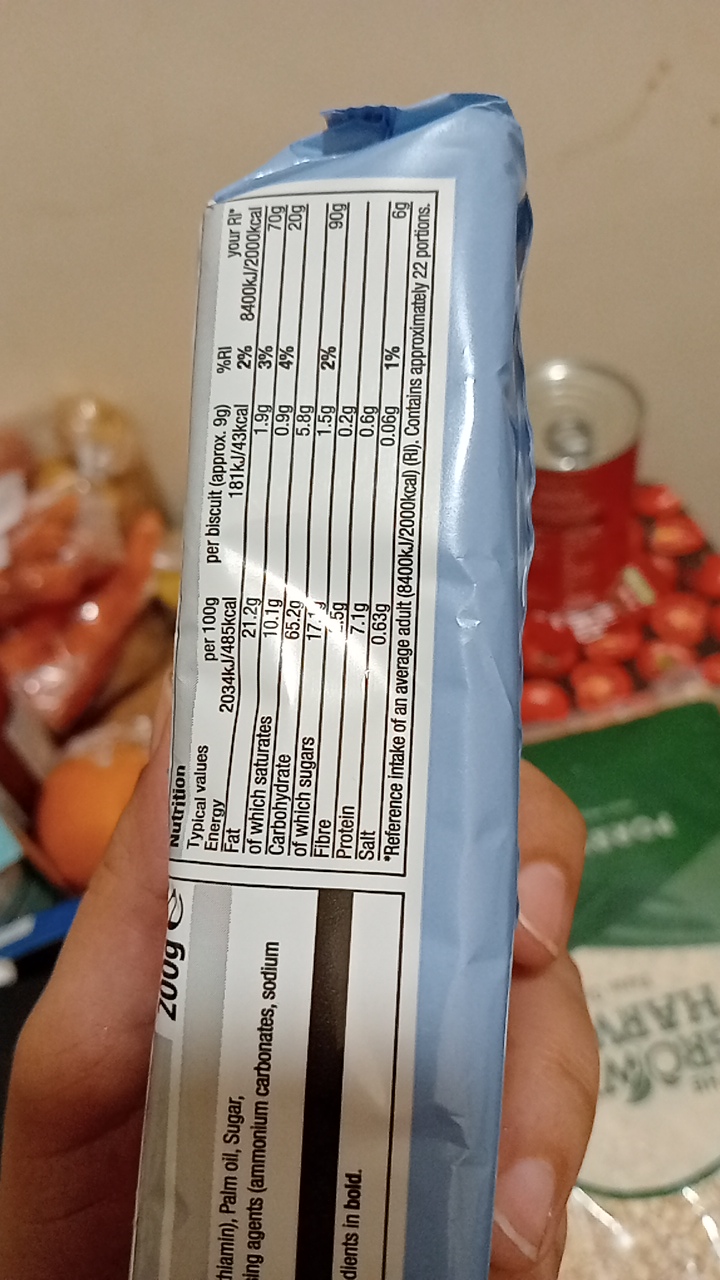
Barcode: 5010251630814
200g
HALAL
📝 Reason: All ingredients in the product are either plant-derived, minerals, or listed in the Halal_ECodes_list provided, with no Haram substances or E-codes detected. Islamic dietary laws permit the consumption of such ingredients as they do not contain any Haram elements like pork, alcohol, or derivatives from Haram sources. Reference: Quran 5:3 for prohibited foods.
📄 Certificates: Vegetarisch
Ingredients:
Details
Understanding the Halal Status of 200g
When it comes to food products, the Halal status is of utmost importance for many consumers. The 200g product is clearly labeled as HALAL, affirming that it meets the necessary dietary requirements outlined by Islamic law. In this article, we will dive into the specifics of its ingredients, the reasoning behind its Halal status, and any relevant certifications that add to its credibility.
Ingredients Breakdown
The ingredients of the 200g include:
- Thiamin
- Palm oil
- Sugar
- Ammonium carbonates (E503)
- Sodium
Let’s analyze each ingredient to understand its Halal compliance.
Ingredient Analysis
Thiamin
Thiamin, a vital vitamin, is generally considered Halal. It is commonly derived from plant sources or synthesized, ensuring it aligns with Halal standards. According to Islamic Foods, thiamin does not contain any Haram elements.
Palm Oil
Palm oil is another ingredient that is plant-derived and widely considered Halal. Its sourcing and processing do not involve any Haram substances, making it a safe choice for consumers. More information can be found on Halal Monitor.
Sugar
Sugar is typically derived from natural sources such as sugarcane or beets. It is generally regarded as Halal, provided that it is not processed with any non-Halal substances. You can read more about its status at Halal Haram World.
Ammonium Carbonates (E503)
Ammonium carbonates are permitted within the Halal context, as confirmed by the Halal E-Codes list. It is primarily used as a leavening agent in baked goods and does not include non-Halal components.
Sodium
Sodium, a mineral salt, is generally viewed as Halal. As indicated in various religious guidelines, it does not pose any dietary restrictions. For further clarity, refer to the sources at Halal Haram World.
Halal Certification and Assurance
The 200g product does not have a specific brand mentioned but carries a ‘Vegetarisch’ certification, indicating an assurance of vegetarian standards. This aligns with Islamic dietary laws that advocate for natural and wholesome ingredients without animal-derived elements from Halal prohibited sources.
Final Thoughts on the Halal status of 200g
In summary, the product 200g is halal and adheres to Islamic dietary laws. All ingredients are either plant-derived, minerals, or confirmed as halal, ensuring no presence of Haram substances such as pork or alcohol. Consumers can feel confident choosing 200g, knowing that it complies with their Halal requirements. The detailed breakdown of ingredients reinforces its Halal status, providing peace of mind for those seeking adherence to dietary laws.
